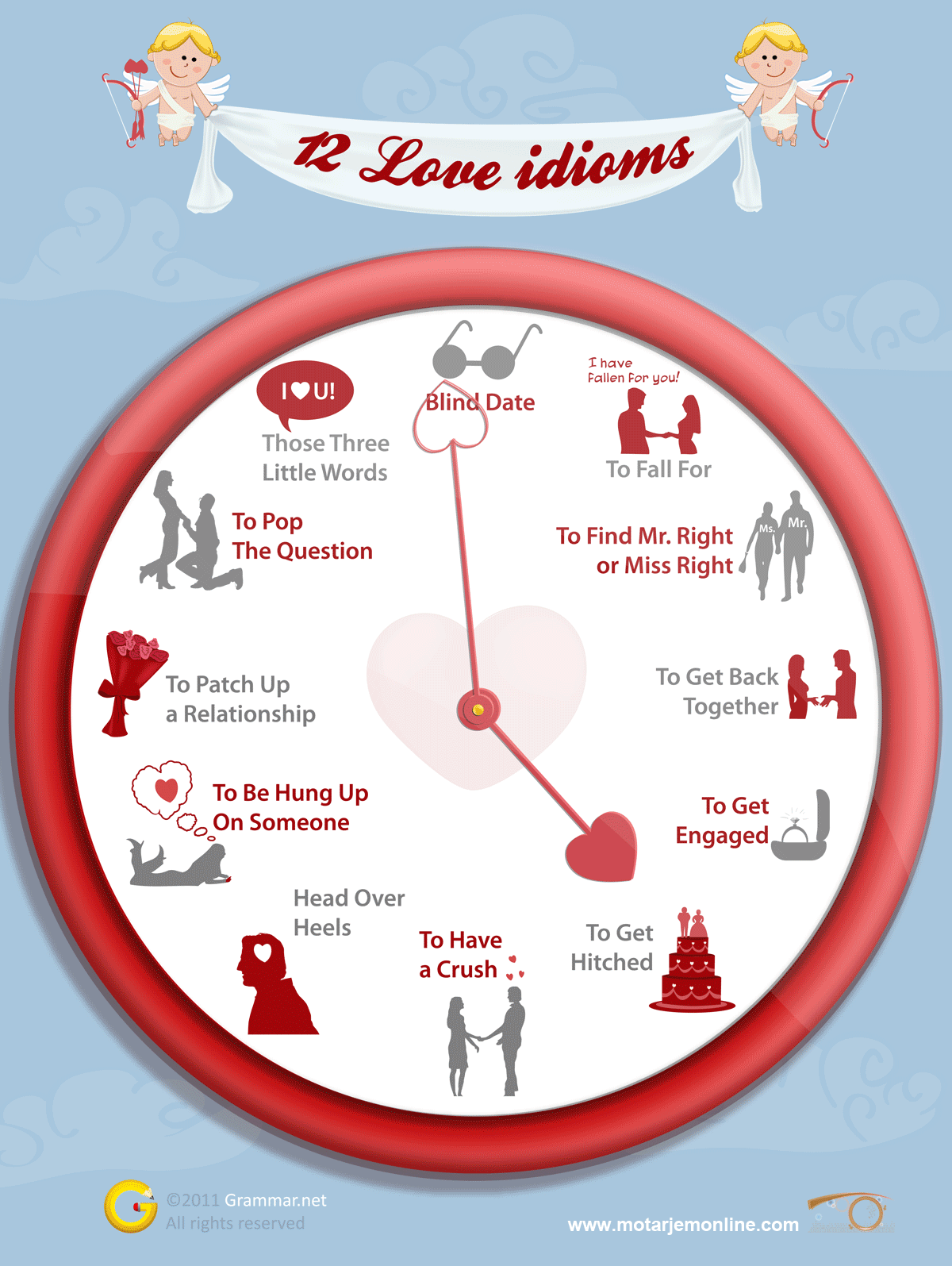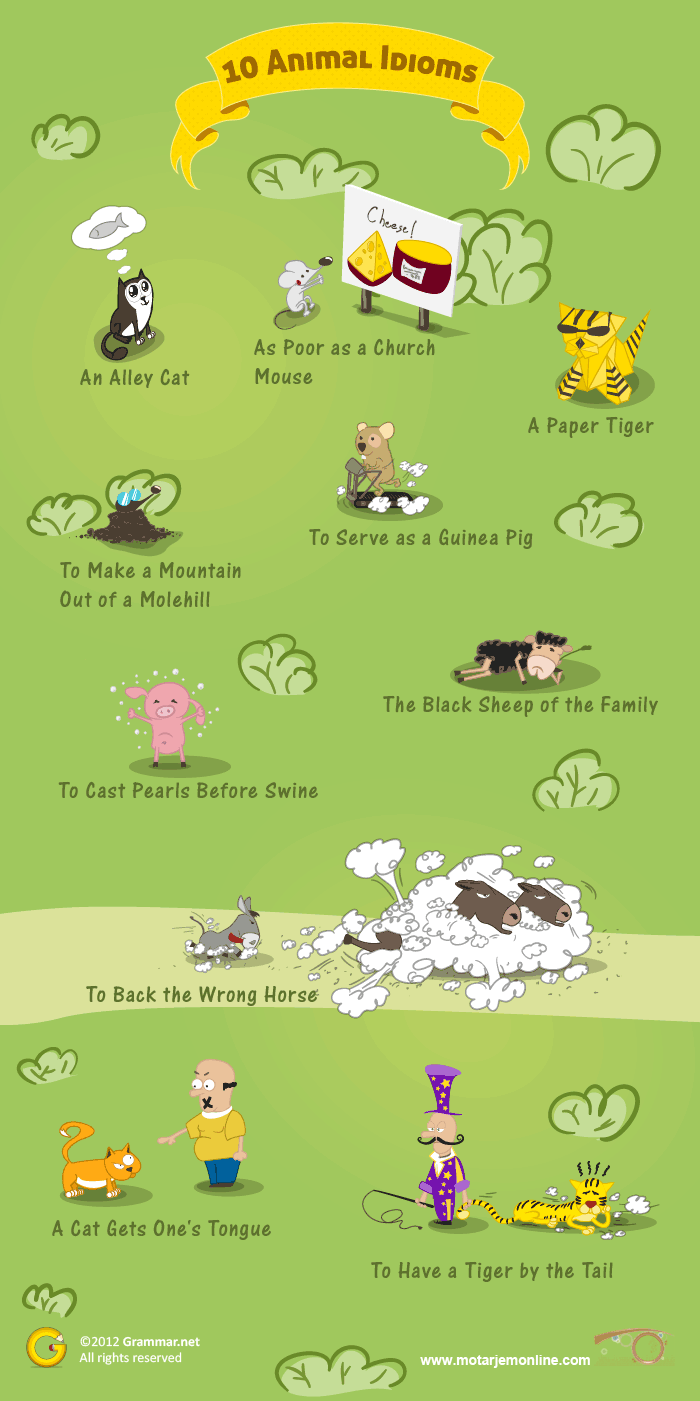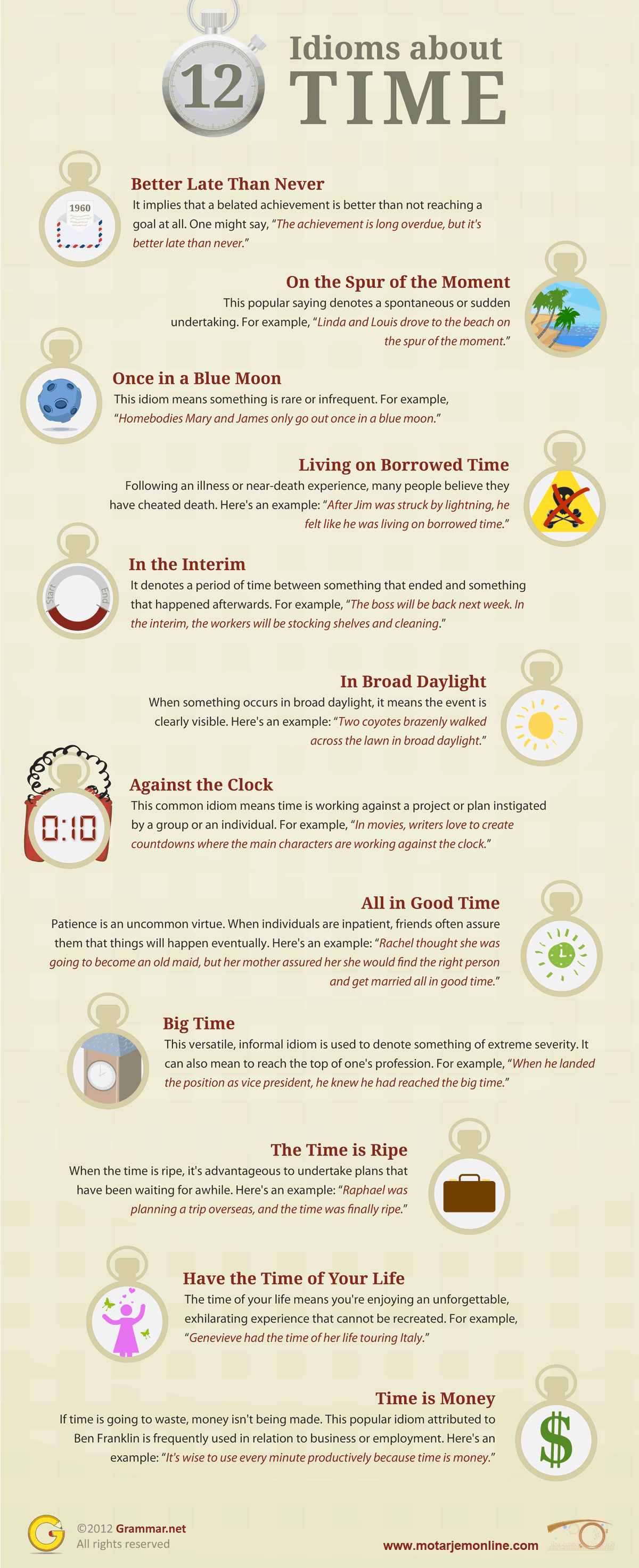10Musical Idioms
English and music evolve constantly and have a tendency to affect each other; a surprising number of idioms have come from music.

Chin Music
Meaningless talk is “chin music”.
“Stop the chin music and give me some solutions.”
“His apology was little more than chin music.”
Change your Tune
“Changing your tune” emphasizes a change of mind/heart.
“Frankie wanted to wear a skirt but changed her tune when it started snowing.”
“Initially, he didn’t like her, but he changed his tune when he saw her kindness.”
Ring a Bell
When something seems familiar, it “rings a bell”.
“I don’t know him, but his face rings a bell.”
“This song rings a bell; did I hear it in a movie?”
Music to my Ears
This idiom emphasizes extremely pleasant news.
“When our boss announced the three day weekend, it was music to our ears.”
“I was afraid the battery was dead, but when I heard my car start, it was music to my ears.”
Set Something to Music
A musician writing a tune for lyrics is “setting the lyrics to music”.
An example of creativity in English idioms and expressions, it can also be used as a sarcastic response to criticism/complaining or as a positive reply to good news/compliments.
Example statement: “You’re ugly, your haircut is horrid, and your breath smells.”
Reply: “Wow, you should set that to music.”
Example statement: “Your tests are negative; you’re cancer-free.”
Reply: “Set that to music, Doc!”
Elevator Music
This idiom refers to popular tunes reorganized into instrumentals and can also describe soft jazz and “easy listening” music. It is played in doctor/dentist offices, on “hold” on the telephone, and in malls.
“The elevator music in my doctor’s office makes me sleepy.”
“Phil laughed when he realized that genuine elevator music was playing inside the elevator.”
For a Song
Items purchased cheaply were bought “for a song”.
“As the car had no engine, Fred was able to buy it for a song.”
“Since Rudy got the engagement ring for a song, he could spend more on his tuxedo.”
Face the Music
“Facing the music” describes dealing with the consequences of one’s actions.
“Inga did not study and will face the music when her grades are posted.”
“After eating nothing but cheeseburgers for years, Bertha was now facing the music.”
Play it by Ear
Talented musicians do not need sheet music and can “play by ear”, but this also indicates uncertainty in unpredictable situations.
“I’m unsure how Martha will react to the new puppy, so lets play it by ear.”
“Until the politician understood how the voters felt, he played it by ear.”
Jam Session
Musicians playing unrehearsed and for fun is a “jam session”, and it can indicate gathering for the purposes of brainstorming.
“Norbert and his buddies got together with their instruments for a jam session.”
“On Wednesday, everyone assigned to the new project will stay late for a jam session.”

Chin Music
Meaningless talk is “chin music”.
“Stop the chin music and give me some solutions.”
“His apology was little more than chin music.”
Change your Tune
“Changing your tune” emphasizes a change of mind/heart.
“Frankie wanted to wear a skirt but changed her tune when it started snowing.”
“Initially, he didn’t like her, but he changed his tune when he saw her kindness.”
Ring a Bell
When something seems familiar, it “rings a bell”.
“I don’t know him, but his face rings a bell.”
“This song rings a bell; did I hear it in a movie?”
Music to my Ears
This idiom emphasizes extremely pleasant news.
“When our boss announced the three day weekend, it was music to our ears.”
“I was afraid the battery was dead, but when I heard my car start, it was music to my ears.”
Set Something to Music
A musician writing a tune for lyrics is “setting the lyrics to music”.
An example of creativity in English idioms and expressions, it can also be used as a sarcastic response to criticism/complaining or as a positive reply to good news/compliments.
Example statement: “You’re ugly, your haircut is horrid, and your breath smells.”
Reply: “Wow, you should set that to music.”
Example statement: “Your tests are negative; you’re cancer-free.”
Reply: “Set that to music, Doc!”
Elevator Music
This idiom refers to popular tunes reorganized into instrumentals and can also describe soft jazz and “easy listening” music. It is played in doctor/dentist offices, on “hold” on the telephone, and in malls.
“The elevator music in my doctor’s office makes me sleepy.”
“Phil laughed when he realized that genuine elevator music was playing inside the elevator.”
For a Song
Items purchased cheaply were bought “for a song”.
“As the car had no engine, Fred was able to buy it for a song.”
“Since Rudy got the engagement ring for a song, he could spend more on his tuxedo.”
Face the Music
“Facing the music” describes dealing with the consequences of one’s actions.
“Inga did not study and will face the music when her grades are posted.”
“After eating nothing but cheeseburgers for years, Bertha was now facing the music.”
Play it by Ear
Talented musicians do not need sheet music and can “play by ear”, but this also indicates uncertainty in unpredictable situations.
“I’m unsure how Martha will react to the new puppy, so lets play it by ear.”
“Until the politician understood how the voters felt, he played it by ear.”
Jam Session
Musicians playing unrehearsed and for fun is a “jam session”, and it can indicate gathering for the purposes of brainstorming.
“Norbert and his buddies got together with their instruments for a jam session.”
“On Wednesday, everyone assigned to the new project will stay late for a jam session.”







نظر